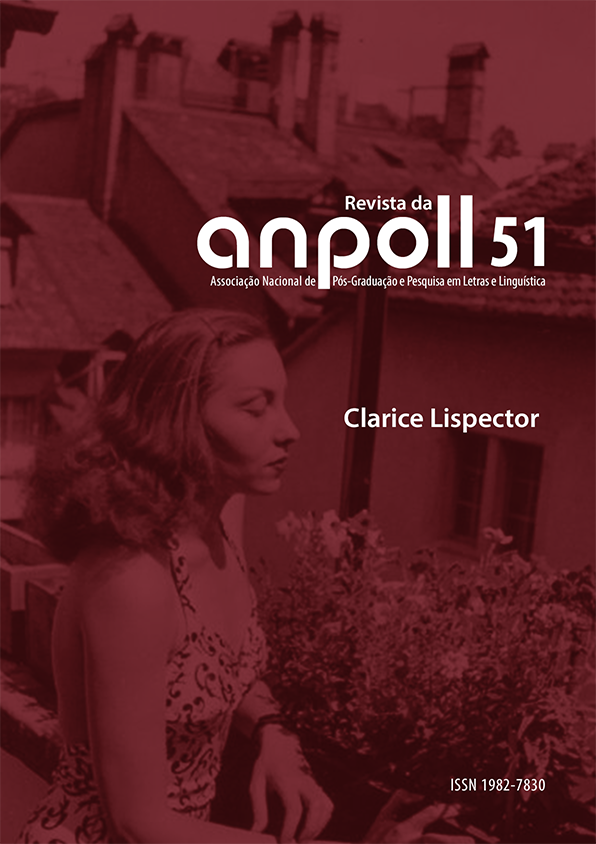Clarice’s last breath: Um sopro de vida as Ars Poetica
DOI:
https://doi.org/10.18309/anp.v51iesp.1524Keywords:
Um sopro de vida, Poetics, Literary genre, MetalinguisticsAbstract
Um sopro de vida is a difficult text, with an uncertain origin, irregular structure and problematic classification, which has occupied, until now, a marginal place in the Clarice Lispector’s production. Contrasting with the immense popularity of Água viva and A hora da estrela (works from the same period with thematic and structural similarities), this text was less recognized. However, this literary project, although unfinished, contains Clarice's last metalinguistic reflections on the act of writing: a poetic literary text that comments on the production of another equally poetic text. In this work I present the problem of its origin and structure; I evaluate critical appraisals; unravel questions of literary structure and genre; and I suggest reading it as a peculiar “ars poetica”.Downloads
Downloads
Published
How to Cite
Issue
Section
License
Os trabalhos publicados na Revista da Anpoll são licenciados sob os termos da licença Creative Commons Atribuição 4.0 Internacional. Assim, os/as autores/as ou terceiros podem copiar e redistribuir o material licenciado em qualquer suporte ou formato, e remixar, transformar, ou criar a partir do material desde que sejam dados os devidos créditos ao trabalho original. Ressalta-se que a redistribuição, transformação ou criação, de iniciativa de dos/as autores/as ou de terceiros, deve mencionar a precedência de sua publicação neste periódico, citando-se o volume, número e data desta publicação.






